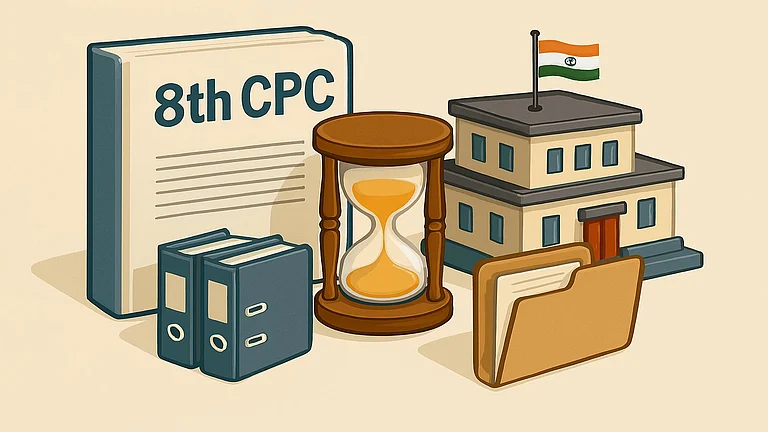
Summary of this article
Delhi's MCD property tax system is calculated using the Unit Area System, factoring in the property's size, age, use, and location. The city is divided into categories A to H, with higher tax rates for upscale areas and lower rates for less developed zones. Property owners must register their properties and pay taxes either online via the MCD portal or offline at ITZ cash counters and zonal offices. This comprehensive guide explains how to calculate property tax, understand your category, and complete the payment process without errors.
The Municipal Corporation of Delhi (MCD) levies property tax and service charges on all private buildings, land parcels and government‑owned properties in the city. A Supreme Court ruling mandates that government‑owned properties completed after January 26, 1950, must pay a service charge. This charge is a percentage of the property's rateable value, set annually by the council.
How Is Property Tax Calculated Under the Unit Area System?
Delhi uses the "Unit Area System" to compute property tax. The calculation runs:
Property Tax = Annual Value × Tax Ratio
Annual Value is derived from:
Unit Area Value × Unit Area × Age Factor × Occupancy Factor × Structure Factor
Unit area value is a per‑square‑metre rate assigned to built‑up area. The age factor (ranging approximately 0.5 to 1.0) adjusts for property age: newer buildings attract higher rates. The occupancy factor reflects whether the property is rented (rent is additional income) or self‑occupied. The tax ratio is a rate published annually under categories A through H, based on location and property type.
What Do Categories A to H Represent in Delhi's Tax System?
The localities of Delhi are grouped into eight tax zones, Categories A to H, which indicate the relative prosperity, infrastructure, and market value of zones:
Category A comprises the most expensive places such as Vasant Vihar, Friends Colony, and Golf Links.
Category B comprises richer but comparatively lower-valued areas such as Greater Kailash I, Defence Colony.
Category C comprises mid-upper regions such as Janakpuri, Patel Nagar.
Category D features middle-class areas such as Ashok Vihar and Laxmi Nagar.
Category E accounts for mixed-use, lower-middle-class areas.
Category F contains modest-income neighbourhoods.
Category G includes budget localities.
Category H covers unauthorised or resettlement colonies with the lowest market values.
Why Are There Occupancy and Age Adjustments?
An often‑asked question: why penalise older or self‑occupied buildings?
The age factor recognises diminished market value in older properties. The occupancy factor tackles rental income: rental units contribute to owners' revenue, so they attract higher taxes compared to owner‑occupied homes.
Step-by-Step: How to Pay MCD Property Tax Online
Delhi is among the municipalities that provide online payment for property tax. The process can be done by following these steps:
Visit the official MCD portal and click the "Property Tax" link under the services heading.
Sign up as a citizen if registering for the first time, or use your old login details.
Sign up for property or recover the Unique Property ID Code (UPIC) to see registered properties.
Provide property-specific details, such as ownership, ledger folio, type, address, bank or payment information, covered area, and arrears, if any.
Review the input carefully, accept the declaration, then submit.
You can choose to pay with a debit or credit card, net banking or a debit card.
Generate and download the payment challan.
Ensure that the receipt of the final payment is saved.
Can One Pay MCD Property Tax Offline?
Yes. Property tax may be paid offline at any of nearly 800 ITZ Cash outlets across the city. Acceptable modes include cash, demand draft, credit or debit cards. A receipt is issued on the spot. Residents can also visit zonal tax offices. South Delhi residents, for example, use the office at Sadiq Nagar, New Delhi.
Common Concerns Among Property‑Owners
Is registering my property mandatory before payment?
Yes. UPIC generation or prior registration is obligatory, so you must link the calculation to your ownership details.
How are arrears handled?
Outstanding dues can be included during submission. If more than one year is unpaid, the system will prompt for arrear amounts.
Are service charges separate from property taxes?
Indeed. Service charges apply only to certain government‑owned properties built after January 1950; private property owners pay only the standard tax, unless otherwise notified.
















